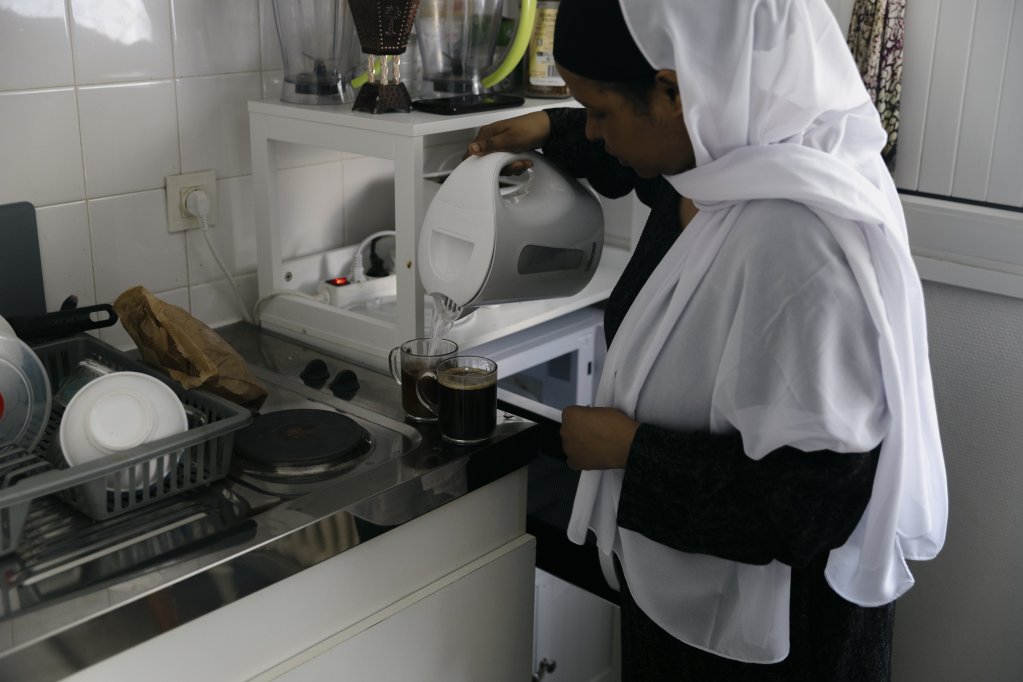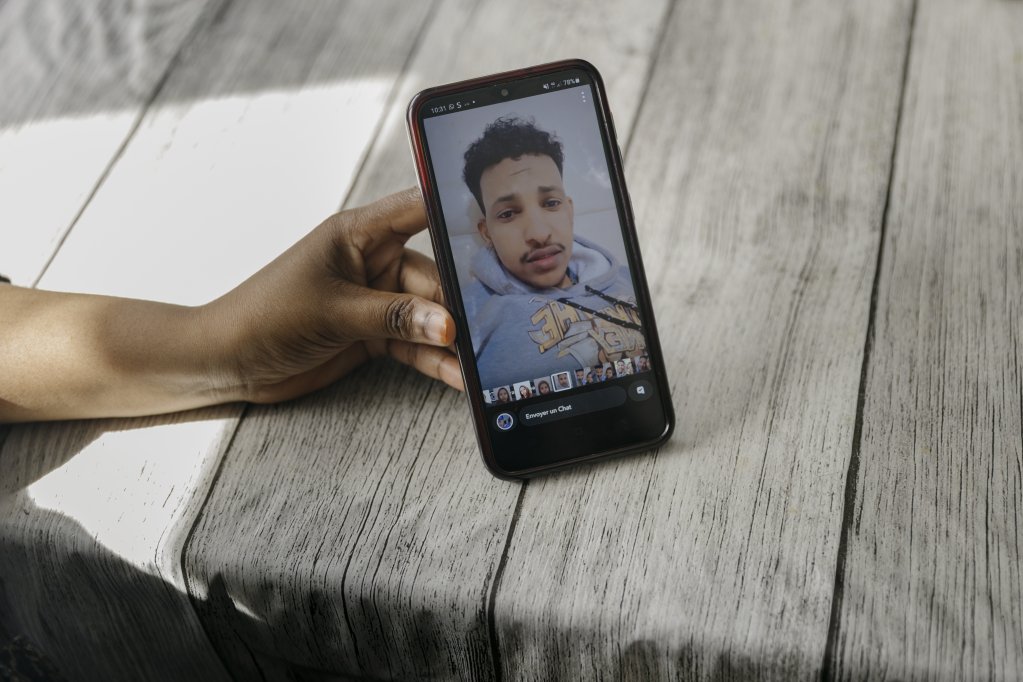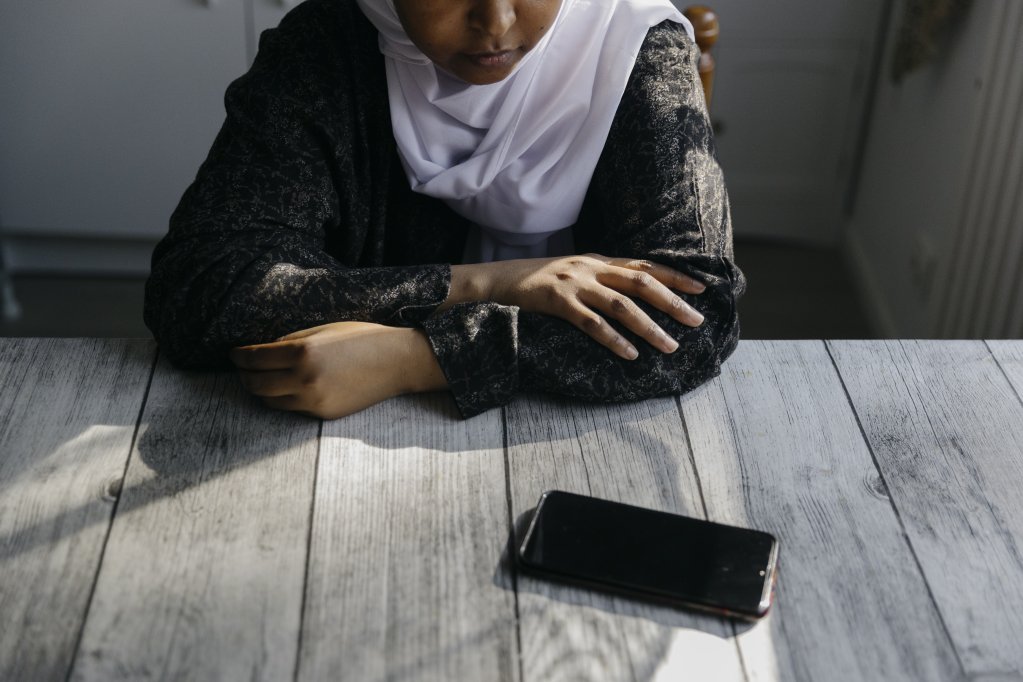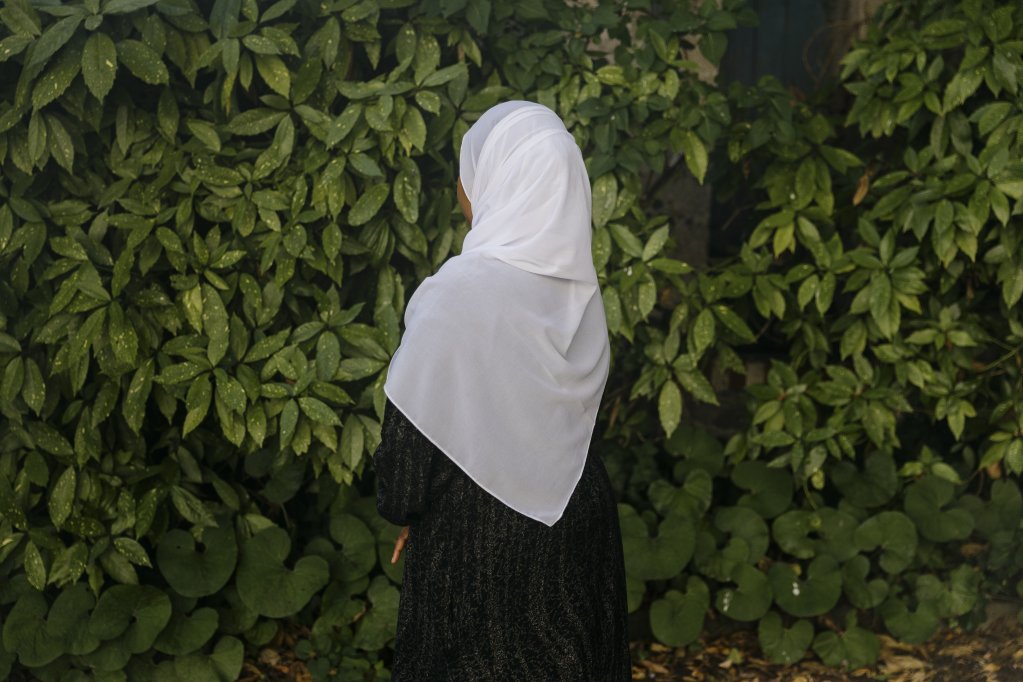Since a shipwreck in the English Channel on May 19, Anab has had no news about her husband, Yahia. The 26-year-old Somali woman and her half-sister have done everything they can to find out what happened to him -- hoping for closure.
Anab poured fresh coffee into clear glasses, which sparked in the morning light. Her living space was a large single room. Here, in the heart of Angers in western France, the apartment was a bubble of comfort and intimacy. A curtain draped from the ceiling shielded the bed from looks from outside. A table pushed up against a large window offered a view of a leafy courtyard.

Despite the apparent serenity, the 26-year-old Somali woman was constantly fidgeting. A little over a month ago, on May 27, her daily routine was shattered by a phone call. It was 11:30 am in the morning when Anab, hired by a business facilitating reintegration in the workplace because of a foot disability, was in the middle of her 26-hour weekly cleaning schedule. Her husband's older brother was on the other end of the line. "He called me from Somalia to tell me that Yahia had tried to cross the Channel the week before," the young woman said in a soft voice. "And that he was never found."
Yahia disappeared in the shipwreck in the Channel that occurred overnight from Sunday, May 18, into the early hours of Monday, May 19. The overcrowded vessel he was in fell apart while it was off the French coast. The authorities were alerted at around 2:30 am, and surveillance resources, including a tugboat, a French naval helicopter and British vessels, were deployed to rescue the passengers. An unconscious person was found in the water and later declared dead. By the end of the search operation, which continued until around noon on Monday, the Channel and North Sea Maritime Prefecture (Prémar) announced that another person remained missing.
Yahia is the first missing person recorded in 2025. Some 46 migrants like Yahia disappeared along the French coast between 2020 and 2024, according to a report published by the French investigative website Mediapart. It’s impossible to know whether they died or not, but the number is equivalent to nearly one disappearance per month.

The couple had planned a civil marriage
Since receiving the phone call, Anab's life has been on hold. The couple had met in Somalia, their home country. Anab came to Angers, France, in January 2014. Family reunification policy allowed her to join her half-sister Asiya (born of the same mother), her parents, and three siblings, all of whom had arrived four years earlier. Anab was 16 at the time.
She began seeing Yahia in Somalia when she was a teenager. Once in France, "we reconnected via social media. He had found work in Turkey at that time," she said. They fell in love.
Anab went to visit him in Turkey. The young couple appeared smiling and relaxed in their selfies from that time. They later married in 2023 in a religious ceremony. The young woman had pictures of the different dresses she wore for the event on her phone: one was black with gold thread, the other was made from pink satin. "It was a beautiful celebration, it’s painful to think about it now," said her half-sister, Asiya, with a sigh. The couple planned to have a civil marriage this summer. But Yahia disappeared in the Channel before their plan could be accomplished.

'Lack of empathy' from the authorities
After the phone call from Yahia's brother, Anab remembered: "I was in shock. I waited until I finished work at 2 pm to call Asiya and everyone else. I didn't return to work in the afternoon. I joined Asiya, and we left for Paris right away." Their mother barely had time to slip croissants into their backpacks, so her daughters could have something to eat along the road. The half-sisters arrived in Paris late that evening, before taking a train to Calais. The two had forgotten to eat for over 24 hours. "I was stressed. I kept thinking: Is he dead? Is he sick? Is he in a coma?" said Anab.
Read AlsoFrance: Nine migrant smuggling suspects on trial
Anab and Asiya looked everywhere in Calais, guided by Google Maps and basic instructions from survivors. They went to the hospital in Calais, visited the Somali community in the camps, and went to the local police station and tried talking to the border police and the maritime police. "We walked for hours, I was in pain everywhere," said Anab, who suffers from a foot problem. Asiya was still angry about the way the authorities treated them. "It wasn't what we expected. We thought we would obtain information. It was their lack of empathy that struck me. It took me a week to recover from it."
The Red Cross, through its family contact restoration program, opened a file to gather any useful information about this disappearance. These intensive efforts gave way to waiting and absence. "Yahia's family calls me every day. I answer the phone, but I don't know what to say anymore; we've already tried everything..." said Anab.

The two women continue making phone calls to other hospitals or police stations along the coast today, most recently to the Boulogne-sur-Mer police station. They still hope to find some trace of Yahia. They created a Snapchat group with their sister and her best friend to help each other with their efforts and keep each other informed.
"Life is a gift from God. So, if it's taken away from you, you cry for three days, then you accept. But now, what's shocking and difficult is that he hasn't been saved, he hasn't appeared anywhere, no one has found him," said Asiya, her face devastated.
'Why take the risk?'
Yahia's journey should have unfolded differently. From Turkey, Yahia crossed Europe to arrive in Germany, where he applied for asylum. He found a job there while waiting for his application to be processed. The couple imagined moving in together the day Yahia's status was regularized. They hoped to eventually settle in eastern France.
Yahia came at the end of April to spend a week with Anab in her Angers apartment. On the morning of May 3, he told her: "I'm going to Paris for a few days to help a friend who's applying for asylum there. Wait for me, I'll be right back." Yahia never returned. Anab and Asiya still don't understand why the young man, who spoke English, boarded a vessel two weeks later.

"He was a calm, kind, and very thoughtful man," according to both sisters. "They planned to live together, get married, and have children. Why take the risk of blowing everything up after so much effort?" wondered Asiya, her voice full of frustration. "Was it this friend who convinced him to cross with him at the last minute? Or had he already planned this crossing for a long time, without telling Anab about it, to avoid worrying my half-sister, who is already naturally anxious?"
Many questions remain unanswered. "Sometimes I can sleep. It's often difficult. All kinds of theories are going through my head," said Anab. Certain Somali survivors told her that they saw Yahia swimming for his life when rescuers arrived. Others say he could have been one of the nine people rescued and brought back by the British. The versions constantly differ. Some said he was wearing a life jacket. Others reported that he took it off because it was hampering his movements.
Survivors, parents, friends: everyone had their own theories. "I don't listen to them anymore. I want to remain rational," said Asiya. "Don't you think he could have survived?" asked Anab, her eyes full of hope. Her efforts haven’t yet yielded any clues, but "hope springs eternal. And these theories give me hope."
This article was produced with the support of Journalismfund Europe.
